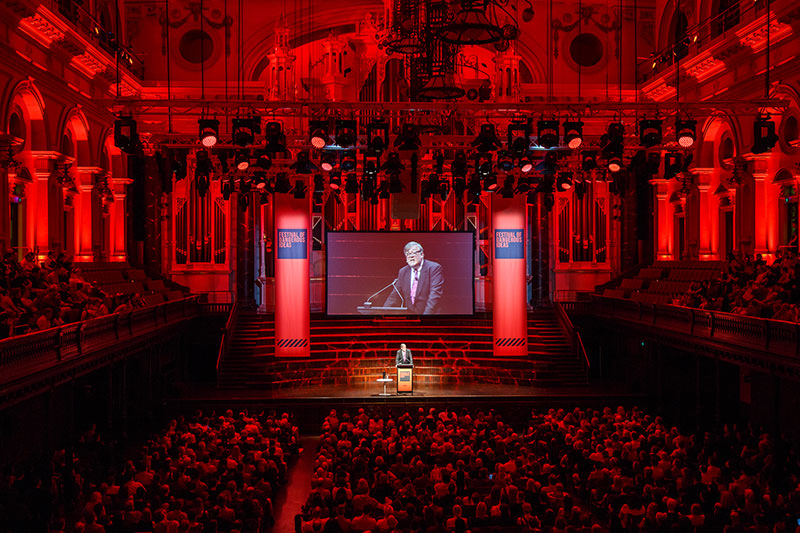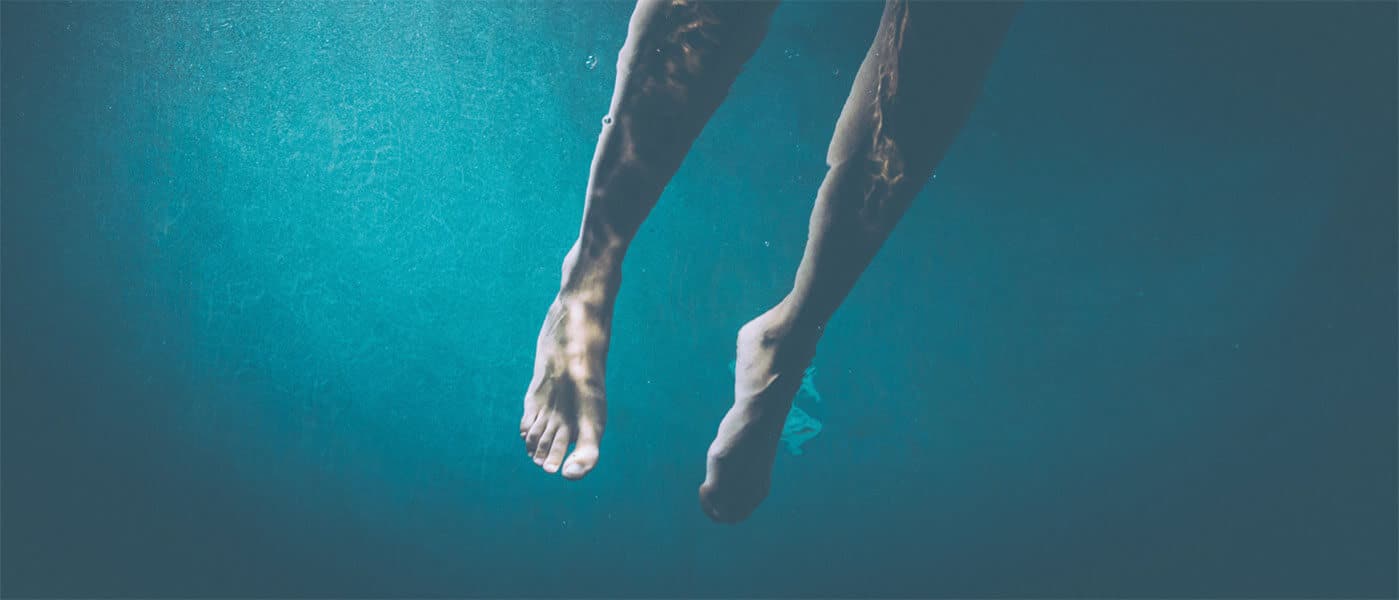David Gonski on corporate responsibility

David Gonski on corporate responsibility
Opinion + AnalysisBusiness + Leadership
BY The Ethics Centre 20 SEP 2021
David Gonski sat down with The Ethics Centre’s Dr Simon Longstaff to chat about the future of business sustainability.
David Gonski is so well known in Australia, his surname has become part of Australian vernacular. He’s been a lawyer, he’s headed up corporations and banks, he’s been the chairman of major companies, and he also serves as chancellor of the University of New South Wales.
After completing a law degree, Gonski got his start in the business world 43 years ago, long before climate, sustainability and corporate responsibility were on the agenda. “Profit was key”, he says, “We lauded people who made money and those who were not tough and didn’t exploit every loophole were regarded as not very good business people.” While his peers in the law profession were driven by ethics and justice, Gonski was disappointed to find that those in the business sector were characterised by their arrogance and capacity to exploit customers and resources for profit.
“I think we are humans and as managers we must never forget that we’re humans. And we have obligations to our society as humans which we bring to every part of the world in which we work.”
Nowadays, sustainable development goals are central to boardroom discussions. Business as a whole; from the very large to the very small, is being recognised as having a major impact in the world both in society and the natural environment, which in part is why people look to businesses increasingly to address concerns where governments have failed to do so.
“Today people don’t want to work for a company that’s not socially responsible. Today people often choose the container that is more biodegradable or whatever than the one that isn’t.”
Gonski on ethics.
In law there are very defined legal ethics, but when it comes to business it’s complicated. As an individual there are certain ethical things that you must do to lead a proper life, and for Gonski, the notion of asking the hard ethical questions has changed his life, and approach to boardroom decisions. Business ethics is about asking the questions: what should I do? What is good for the planet? What is good for the future – the long term versus the short term? He believes those who are successful in business are those who really think about things, rather than just learning things by rote or just accepting the status quo. Of course, sometimes you make the wrong decision but you must always be willing to ask the questions.
Gonski on responsibility.
Above all, business leaders have a responsibility to their community. Business should never be about just about making profits, or just employing good people, but rather consider what business is achieving for the long-term future of the country and our society. Responsibility should be a compulsion, because if we ignore it, it will in the end reduce the value of our business and deter us from being able to do what we want to do.
Gonski on sustainability.
Sustainability should be our longer term compulsion to look at what your short-term thinking is and how that can affect long-term growth. “I have lived through 40 plus years of people making short-term decisions. And let me tell you, they may not have themselves regretted because often they’ve made good bonuses from it, but in the long-term the business has.”
AUDIO: Listen to David Gonski chat about the three key pillars of management.
What keeps Gonski up at night?
“I do believe we should all be working together. And I am worried that our working together between corporations, government, and the community generally is not as perfect a circle as it needs to be. We need to hold hands rather than keep arguing with each other. It’s still a little too easy to make short-term decisions. And I’m often very comfortable that a decision in the short-term is right, but I wonder a lot in the wee hours of the morning ‘is it a long-term sustainable idea?’”
Is David Gonski optimistic about the future?
“I am extremely optimistic and I have a number of reasons to be. As chancellor of a university my optimism is always reinjected and reignited by meeting the students that we’ve got. We’ve got fabulous people, who are excited by concepts, who are thinking, who want to change things in their own way and do good things. That’s exciting. That’s wonderful.”
“ I think an absolutely guided and principled optimism is the way one should look at business.”
Gonski’s advice for future business leaders.
Despite having over four decades of business experience, David Gonski is still learning. Throughout the pandemic, one of his most important lessons was that canvassing broadly for advice is a strength not a weakness; that it’s vital to broaden your circle of advisors and take more advice from more people. One of the hardest things for CEOs is to admit they don’t know the answer to a question, but terrible things happen when they pretend to know the answers. Throughout his career, Gonski has watched many CEOs laud strength, which is manifested in people who can make fast decisions, in people who don’t prevaricate, but now he believes the real strength lies in an ability to put one’s thinking to one side and seek advice.
AUDIO: Listen to David Gonski chat about what he looks for in a CEO.
Five tips from David Gonski.
- Make sure you understand the history of the company.
- Learn about ethics.
- Be willing to admit you don’t know all the answers, and seek advice.
- Be open to ideas.
- Seek inspiration from your communities.
AUDIO: Listen to the full podcast discussion >>
David Gonski is former Chairman of ANZ and Coca-Cola Amatil, he is also Chancellor of the University of New South Wales, President of the Art Gallery of NSW Trust, and Chairman of the UNSW Foundation. He is a member of the ASIC External Advisory Panel and the board of the Lowy Institute for International Policy, a Patron of the Australian Indigenous Education Foundation and Raise Foundation and a Founding Panel Member of Adara Partners. In 2008, The Sydney Morning Herald described Gonski as “one of the country’s best-connected businessmen”.
This episode was made possible with the support of the Australian Graduate School of Management, in the School of Business, at the University of New South Wales. Find out more about other conversations in the Leading with Purpose podcast.
Get more articles and podcasts like this by signing up to our Professional Ethics Quarterly newsletter here.
Ethics in your inbox.
Get the latest inspiration, intelligence, events & more.
By signing up you agree to our privacy policy
You might be interested in…
Opinion + Analysis
Business + Leadership
Businesses can’t afford not to be good
Opinion + Analysis
Business + Leadership
Moral injury is a new test for employers
Opinion + Analysis
Business + Leadership
Ethics in engineering makes good foundations
Opinion + Analysis
Business + Leadership, Politics + Human Rights
Vaccination guidelines for businesses
BY The Ethics Centre
The Ethics Centre is a not-for-profit organisation developing innovative programs, services and experiences, designed to bring ethics to the centre of professional and personal life.
Violent porn denies women’s human rights

Violent porn denies women’s human rights
Opinion + AnalysisRelationships
BY Caitlin Roper The Ethics Centre 20 SEP 2021
In a piece published here earlier this month, ethics teacher Georgia Fagan argued that violent pornography was not incompatible with feminism – that it could even be a ‘feminist choice’ compatible with ‘gender equality’. Naturally those of us who have engaged in this field for many years did a double-take.
Fagan argues that feminist efforts to dismantle the pornography industry deny the rights of female performers to “use their naked bodies for profit”. She claims such content represents a “celebration” of “emancipated female sexuality”.
The notion that violent pornography can be ‘feminist’ is evidence of one of two assumptions; that filmed acts of male violence against women for men’s sexual gratification can be a feminist endeavour, or that the violence done to women in the production of pornography does not count as violence. As feminist legal scholar Catharine MacKinnon noted, pornography is a record of men’s violence against women. It is not fantasy, not speech, but acted out on the bodies of real women who are directly used to produce it – “what pornography does, it does in the real world”.
Mainstream pornography is the graphic, sexualised depiction of male dominance and female subordination. It eroticises men’s violence, aggression, cruelty, degradation and humiliation of women. It is hate speech, anti-woman propaganda and sexual terrorism against women. It dehumanises women as sexual objects existing wholly for men’s sexual use and abuse, as whores who love to be fucked, a set of hands and holes, as “cumdumpsters”. As such, feminists have argued that pornography – particularly, violent pornography – is at odds with women’s dignity, humanity and human rights.
Research bears this out. A 2010 content analysis of popular porn videos found that 88.2% of scenes contained physical aggression, and that perpetrators were usually male and the targets of their aggression overwhelmingly female. Research has also found pornography consumption is statistically significantly correlated with physical abuse (both victimisation and perpetration), sexual abuse (both victimisation and perpetration), acceptance of rape myths and negative gender equitable attitudes.
The defence of pornography as “empowering” for women is rooted in liberal ‘choice’ feminism, which is centred around individual empowerment rather than challenging power structures that harm women collectively. There is no recognition of women as a sex-class, with a shared condition or experience of oppression, and no acknowledgement of the social constraints under which women make choices. Rather than a collective movement to liberate women as a whole from oppression, ‘choice’ feminism serves to justify women’s participation in harmful and misogynistic practices at the expense of women as a class.
But focusing on individual women and their consent to male violence and abuse invisibilises those who perpetrate, produce, profit from and take pleasure in viewing it – men.
The reality is many women are seriously harmed in the production of pornography. They report experiencing violence and rape (as Stoya, the porn star Fagan quotes, has), coercion, exploitation, drug and alcohol abuse, trauma and suicidality. Some leave the industry after just months with irreparable damage to their bodies.
The mainstreaming and proliferation of pornography has not emancipated women and girls outside the industry who are forced to engage with men and boys who are regular consumers of it. In addition to a climate of sexual harassment, including daily requests for nudes and sexual moaning in the classroom by male classmates, young women and girls report feeling pressured to participate in painful, degrading and unwanted sex acts their male partners have seen in pornography. They report being expected to want to be choked, hit, have anal sex (coerced anal sex is rising) and to have their faces ejaculated on – the signature acts of the porn industry.
Young women have “unlimited rape stories”, documented in the thousands of accounts from Sydney students compiled by Chanel Contos. Recently at the consent roundtable she organised, domestic violence workers described the link between porn and violence against women, describing the majority of porn which depicts “aggressive, non-consensual, violent, and degrading behaviour.”
Violent pornography influences consumers’ sexual appetites, attitudes and practices and women and girls are paying the price – some even with their lives. A 2019 study from Indiana School of Public Health found that nearly a quarter of women in the US have felt scared during sex, having been choked without warning by their male sexual partners. UK-based campaign We Can’t Consent To This has documented at least 60 cases so far where women have been killed by men who have claimed it was due to “rough sex” or a “sex game gone wrong”.
While we support sexual consent education as a possible solution, better education around consent will have limited success when boys are being raised on and regularly masturbating to violent and misogynist pornography depicting women enjoying being degraded and brutalised.
“Either it is ethical and honourable to ‘play with’ and promote the dynamics of humiliation and violence that terrorise, maim and kill women daily, or it is not.”
As feminist researcher Rebecca Whisnant wrote of so-called feminist pornography, “Either it is ethical and honourable to ‘play with’ and promote the dynamics of humiliation and violence that terrorise, maim and kill women daily, or it is not.”
Violent pornography is the filmed abuse of women, and as such, both the production and consumption of it are fundamentally at odds with women’s human rights. It can only be defended if we accept that men’s sexual gratification is more valuable than women’s humanity.
Ethics in your inbox.
Get the latest inspiration, intelligence, events & more.
By signing up you agree to our privacy policy
You might be interested in…
Opinion + Analysis
Relationships
We already know how to cancel. We also need to know how to forgive
Big thinker
Relationships
Big Thinker: Jean-Paul Sartre
Opinion + Analysis
Business + Leadership, Relationships
Workplace romances, dead or just hidden from view?
Big thinker
Relationships
Big Thinker: Kate Manne
BY The Ethics Centre
The Ethics Centre is a not-for-profit organisation developing innovative programs, services and experiences, designed to bring ethics to the centre of professional and personal life.
In Review: The Festival of Dangerous Ideas 2018

In Review: The Festival of Dangerous Ideas 2018
Opinion + AnalysisRelationshipsSociety + Culture
BY The Ethics Centre 21 NOV 2018
Being tied in a knot of lies, the danger of scepticism, micro-dosing LSD and dismantling bi-partisan politics were just some of the themes threaded throughout this year’s Festival of Dangerous Ideas.
Thousands crossed the threshold into the Festival’s new home on Cockatoo Island. Two days, 31 sessions, and 45 speakers later, they left with a feast of ideas and new perspectives.
For the first time, the island’s unique location and new full-day festival pass meant that you could delve deeper into FODI than ever before.
Caliphate host Rukmini Callimachi shared aching stories of violence and honour in ISIS camps; conservative historian Niall Ferguson forced us all to rethink before we retweet; and pop-culture savant Chuck Klosterman had us empathising with the unlucky aliens who colonise us.
“Hard truths, fleshy realities, blunt edged disagreement and sharp new ideas – all mixed together with a throng of people in an iconic location that spoke alongside the artists and speakers. It was a brilliant amalgam, FODI at its best,” said Dr Simon Longstaff, co-founder, co-curator, and executive director of The Ethics Centre.
For the first time, the island’s unique location and new full-day festival pass format allowed FODI-goers to attend a number of the 31 sessions and delve deeper into different topics and viewpoints while enjoying talks and panels, art installations, ethics workshops and even a touch of cabaret!
Even the master-of-all-trades, Stephen Fry, couldn’t avoid the glamour. A standing ovation roared through Sydney’s Town Hall for his delivery of the inaugural keynote, The Hitch. In honour of his dear friend, the late Christopher Hitchens, Fry had the sold-out venue in oscillating between stitches of laugher and solemn agreement when he lamented the lost art of disagreement in an age of deepening extremes.

Thinkers from around the globe tackled issues of truth, trust and technological disruption, including Caliphate podcast host and New York Times ISIS foreign correspondent Rukmini Callimachi, British conservative commentator Niall Ferguson, AI man-of-the-moment Professor Toby Walsh, and pop-culture savant Chuck Klosterman.
The sold out festival drew crowds of over 16,500 seats across the weekend, with #FODI trending across social media channels all weekend.
The Centre is enormously proud of this festival which we started a decade ago to provide a space to talk about the issues that divide and baffle us without tearing tearing ourselves and each other apart. And we’re thrilled it’s been a continued success in 2018 with a fantastic new partner, The University of New South Wales Centre for Ideas, and a fitting new home.
If you weren’t able to join us, many of our sessions were recorded and we’ll be releasing them over the coming weeks and months.
We’ll keep you posted in our enews or follow us on Facebook, Twitter, Instagram and LinkedIn for more release updates.
Ethics in your inbox.
Get the latest inspiration, intelligence, events & more.
By signing up you agree to our privacy policy
You might be interested in…
Opinion + Analysis
Business + Leadership, Health + Wellbeing, Relationships
Moving on from the pandemic means letting go
Opinion + Analysis
Relationships
Israel Folau: appeals to conscience cut both ways
Explainer
Relationships
Ethics Explainer: Conservatism
Opinion + Analysis
Relationships














